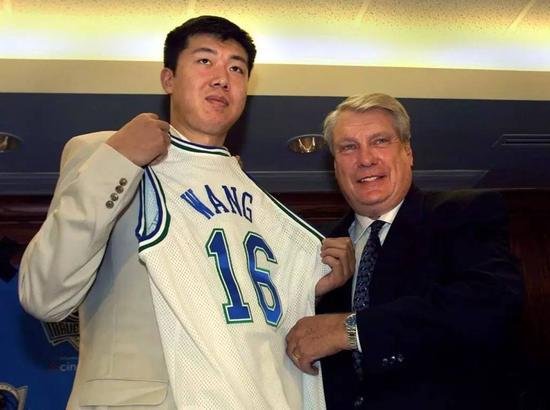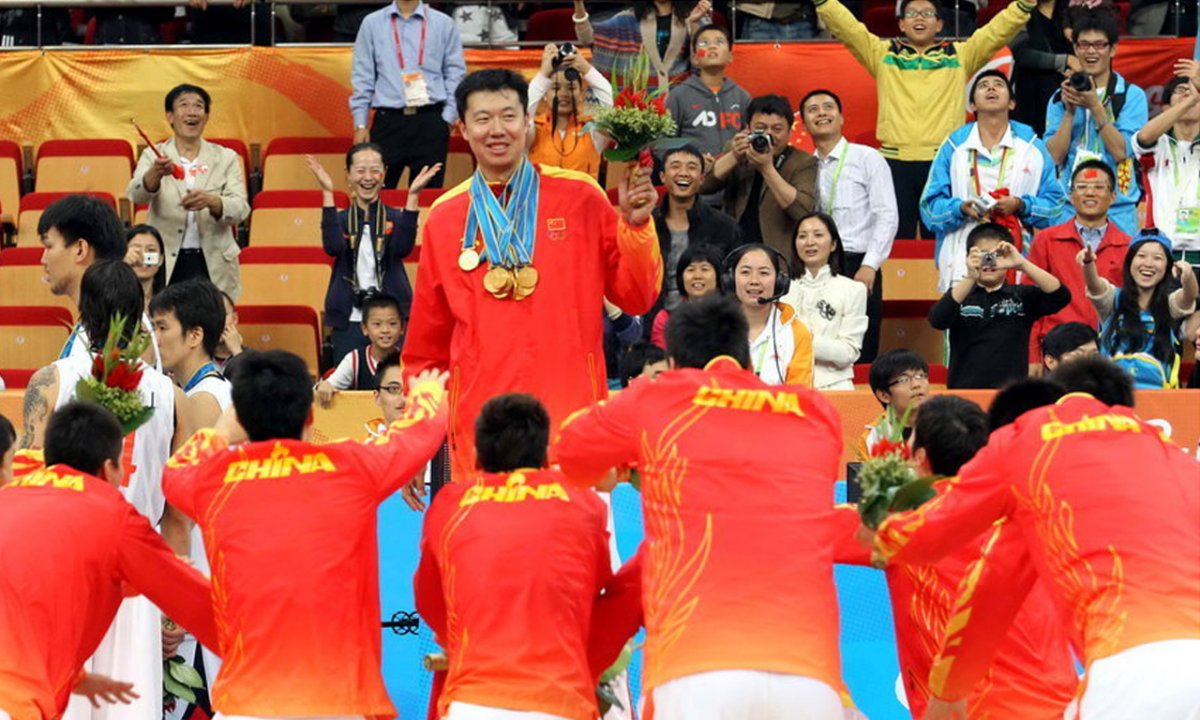Beijing-Born Wang Zhizhi Retires from Professional Basketball Before China Faces USA in the 2016 Olympics
Wang Zhizhi, Beijing-born former Dallas Mavericks, Miami Heat, and LA Clippers player, and the first Chinese-born basketball player to ever be in the NBA, announced his retirement from professional basketball last week at the 2016 FIBA Stankovic Continental Cup.
Born in 1977 in Beijing, Wang signed his first professional contract with a military team, the Bayi Rockets, at the age of 17. He helped that team win three consecutive CBA championships between 1996 and 1999 before he was snached up by the Dallas Mavericks with the 36th overall pick in 1999. Wang was largely regarded as the best basketball player in China of his time.

Contract disputes between the Mavericks and the Bayi Rockets kept him from suiting up until 2001, when he helped the Rockets win their six consecutive CBA title since 1995.
But his winning streak didn't end there. Wang was also successful after joining the NBA. He was a major susbtitute of Dirk Nowitzki during his two-year stint with the Mavericks, averaging 4.8 and 5.6 points per game respectively.
In 2001, Wang tried to stay in the US for the NBA summer games instead of representing China at the Asian Basketball Championships that same same year, which infurated the Chinese Basketball Federation (CBF). Wang was hence banned from the Chinese national team until 2005.
Without any support and backup from his home country, his image was also completely maligned by the Chinese media for four years. Wang also continued to struggle in the NBA. After the Mavericks, he spent three more seasons in the NBA with the Miami Heat and the LA Clippers, but never managed to become a regular rotation player. Wang returned to play in the CBA in late 2005 after he made peace with the CBF.
Wang will be remembered not only as one of the most popular basketball players in China of all time, but also as a pioneer and the "whipping boy" who paved the way for the next generation's Chinese-born NBA players including Yao Ming, Yi Jianlian, Sun Yue and Menke Bateer. Wang will also be remembered for his Beijing style light-heartedness and his sense of humor.

Perhaps due to regret for the way he was treated by the CBF, Wang's image has almost been completely reversed in recent years, especially after he single-handedly helped China win the title of the 2010 Asian Games. After the final game (in which China beat South Korea 77-71) the 33-year-old veteran was given all the medals by his teammates and received a standing ovation from the audience, in almost the same manner that Michael Jordan had when he returned to Chicago with the Washington Wizards. Such an act, giving the highest honor to a player, is rarely seen in China's professional sports scenes.
Dubbed by the media and his fans as the lao nanhai (the old boy), Wang has also had a major impact on Chinese popular culture as of late. Lao nanhai, a moniker gone viral with the Chopstick Brothers' song of the same name, has become an exclusive reference to Wang when it is used by itself.
Sitting at the bottom in this year's FIBA Stankovic Contentinental Cup, a major warm-up event for the Olympic basketball games in August, the 2016 China Team remains a mystery for the coming Olympics. In a little less than a month, August 6 to be exact, China will face the USA in their first game of the 2016 Olympics. The Chinese side will feature this year's newly picked NBA prospects Zhou Qi and Wang Zhelin, former New Jersy Net Yi Jianlian, as well as Zhai Xiaochuan of the Beijing Ducks, while the American side will be led by Carmelo Anthony, Kevin Durant and Kyrie Irving.
The game will be broadcasted live by CCTV 5 on August 7 at 6am Beijing time.
Photos: szlg.com, wanhuajing.com, tianya.com







